TRANSFORM YOUR TEAM'S SEASON WITH PROFESSIONALLY PLANNED SESSIONS
Use our expert plans or build your own using our library of over 700+ drills, and easy-to-use tools.
JOIN NOWTeam keep getting thrashed every week - where to start?
Having been the sole coach/manager of a little league team for the past two years, this year I lost all my senior players. I was therefore presented with 10 brand new lads, some of whom have never played competitive football. We are 8 games in and my lads are getting thrashed every week.
The main problems are that they cannot get the ball out of their half, positions are usually a mess, finishing and chance creation are non-existent, and they don't apply any pressure or are unable to tackle. The main problems are keeping the ball as a team, getting it in the opponents half and staying there, and creating/finishing chances. I only have 1 and a half hours a week with them.
I don't really know what to do, and I'm a little desperate. Does anybody have any advice?
Thanks for literally anything.
What age group is this? If these are young kids, ask the opposition coach if you can use the half-way line as a retreat line for goal kicks. This works really well for up to U10s 7v7 teams on a mini-soccer pitch. It gives the defenders enough time to control a pass from the keeper and then look up to see if they can make a pass.
Alternatively ask your league secretary if they can put you in a more appropriate division.
If these children are under 11s then, in addition to Tim's good suggestion above, ask the opposition coach to play his strikers in defence and vice versa. Also, the result should not matter. Give them easy to achieve individual and team targets eg 3 x good passes, 2 x successful challenges etc and praise them at both half and full-time for achieving them. Their confidence will improve quickly and so will their performances.
For learning positioning i have used skipping ropes before with my back line so that they got the idea of of moving over as a unit forwards backwards and sideways. To be honest it seems like theyre not ready for competitive football just yet, any chance that they could drop out the league and use that time for training ? May benefit them in the long run.
I coach 7 competive teams and I have one team with same issue. I just keep training them the same way I train my better players and give them simple goals to achive. It has got better but you must make them understand that winning is not the only result you are looking for . You want to make them better players and to work as a team.
hi, just a thought which may help in training.. i think you should concentrate on tika taka.. this is the most proven and effective method of improving basic skills that will be vital in the future of these young footballers, tight pitches with 2 touch, only shooting in the box. if you have the numbers 4v4 is perfect.. many touches and decision making will become second nature to them...there are many variations to these type of games that can be fun... on match day keep the tactics simple and remember its not always about winning its about teaching them the game at this age... always pick out the positives regardless of the scoreline and you will see graduale improvment.. good luck
Hey my name is Val,
what you shout do it star with the basik skills witch is ball tap and how to play with the ball. You shout star 1v1 and form ther you need to do somthing that will help the team to get bettter as long they talk and now how to play with the ball you with have a good team all it matter is the talking and play with the ball:)
Just to back up what people in this tread have already mentioned. It does depend on the age group but generally start with teaching them the basics - passing, control, tackling etc. and every week keep re-emphasising the basicsâ¦. Lots of 1v1, 2v1 2v2 and 4v4 drills and games. Use a few basic drills and keep going with those and build on their concepts rather than keep chopping and changing every week or making them to complex.
I have taken a very inexperienced group of player and as team they are all starting to understand more about what they should do and when. It won't come overnight and this is the key thing to realise from a coaching perspective and every player advances at their own pace. As far as matches are concerned don't worry about the scores but look for the positives in each match⦠it will come but it will take time!!
Some good suggestions above. I've been in the same boat; taking a team with merely recreational or no experience to a competitive environment as a novice coach and getting absolutely thrashed. You may already do much of the below, but I post it also to impart what I've learned to any novice coaches who may be reading. Basically, practices have to become much more efficient and comprehensive for a novice coach to begin to have some success and the players to develop unless already blessed with the cream of the crop.
1) It will take time. Some of the teams you are playing against have played together for several seasons or years. I didn't win my first competitive game until the end of my second season. With what I know now, I think I could have done it sooner or at least not gotten thrashed so badly.
2) You need to practice more with them. I find 1.5 hours per practice session to be perfect. If you play one game a week, you should practice twice a week. Two games a week, practice once a week. In the period before the season, start practicing three times a week at least a month in advance of the season.
3) Get an assistant coach(s) or dedicated parent(s) to be at all or most practices. I've discovered that a team is at least 25% to 30% more effective with a dedicated assistant because your practices will be more efficient and you will have more eyes during the game. An assistant can help you quickly set up the field for each drill and because you should be playing several small sided games at once can help keep an eye on one while you watch another. I also prefer to have someone besides a player shag balls to reduce a player's downtime though it can be an effective punishment for poor shooting on goal.
4) More effcient and monster practices especially since your lads are new. No lines, no waiting around, fewer cones, few or no laps, etc. Everyone is doing something almost all the time. This means having an assistant as per the above and a good practice plan. With everyone on the ball and moving around, they get conditioning at the same time. In fact, you should have conditoning in mind when you design drills. The size of the drill field, number of players in the drill, length of drill, difficulty of drill, all adjust the conditioning effect.
5) At least one third to one half the time spent on moves and 1v1. Teach some moves and go right into 1v1 where they must perform the moves against a real moving person rather than at cones. Sometimes you must have the defender apply only light pressure before moving to full pressure as they learn. 1v1 is where it's at because cones only help demostrate the moves. This is where they become 1v1 artists and that will help them win the ball and do something good with it. Break them up into small groups so there is no waiting around. Switch groups so they play against varied opposition. There are a variety of 1v1 games to choose from so it's not all the same. In the 1v1, have them go to a double goal, say two small pugg goals on each endline instead of one goal. This will force them to think and use changes of direction and prevent the defender from easily blocking one goal. Have at least two of these games going to reduce waiting. If the ball gets too far away, they are done and the next two players go.
Also, set up two large goals 20 meters apart and have 1v1 plus keepers. Rotate players in and out as keepers. They don't need to be great keepers, just a moving body in goal to make it more difficult to shoot on. However this is where you can train keepers and your strikers too. Have two or more of these setups going at the same time to reduce waiting. If you don't have large goals/nets to work with, I use 5-6 ft. corner flags and shots above the flags don't count.
6) Spend one third to one half the time on passing/possesion. Expand your 1v1 games to 2v2. Use the variations of triangle passing etc. Play lots of 3v3 or 4v4 plus one or two neutral players in space (no goals). Point scored with succesful pass to and pass back from neutrals or other variations. Everyone should get a chance to play neutral but are typically your midfielders OR your least effective players who will be forced to play the ball in this situation and get to build trust with the other teamates. Have at least two of these games going at the same time as number of players permits. Every time you have an odd number of players, use one neutral. When you have an even number, use zero or two neutrals.
7) Also for finishing, I like 3v3 on a long narrow field, say 40x20 depending on the age of the players. They go against keepers in large goals or two separated small goals on each endline. A score does not count unless all players on the team are on the attacking half. Great for conditioning and tryouts as well.
8) Move to 5v5 to 7v7 plus keepers if possible on a smaller (50x30?) field. Add one rule to teach or emphasize specific techniques such as a point for passes greater than 10 meters, each pass must be followed by an overlap, ball must be switched twice before shot, shot must be from middle section of the field, each pass must be backwards (forcing dribbling and 1v1 to advance the ball) etc.
9) In the time remaining, shadow practice the formation. How do we keep our shape? What are the ways to work the ball out of the defense? How can you transition to offense or back to defense? How can you attack the goal? etc. What if the other team packs the defense, do we drop back to entice them out or do we add short passes and overlaps to break it? We like direct attack but until we can, play keep away and use drops and swtiches to maintain possession. We like to get to the endline when attacking then cross or drop and shoot. Get the goal keeper involved in switching the ball to the other side and playing keeper/sweeper. Etc.
10) Spend any additional time on set plays (corners, free kicks, throw ins, kick offs etc.) and shooting, training keepers or team trains keepers etc.
11) When you send them off to rest or get a drink, 30 seconds to two minutes at most, have them dribble or footwork through a cone obstacle course, or juggle, to get to and back from water. I would put volleys and heading in the moves and 1v1 segment.
12) With the above, you can keep them moving and conditioned, give them many touches on the ball. Give them many opportunities to break down a defender 1v1 and many chances to pass and move when not involved in the pass.
It's a beautiful game. It's simple (just 1v1, passing and moving, and everything else).
Good luck!
Add more players to the team so you are the one picking the team as teams that don`t have many players have problems. Keep players in positions do not rotate as they need to get used to playing in a suitable position. Make use of a assistant coach
In this situation I try to keep it simple by picking 3 concepts we want to learn by the end of the season and drilling those 3 concepts almost exclusively. Trying to cram a lifetime of knowledge into an 8-10 week season just doesn`t make sense to me. Usually it comes down to working on shape (a lot on shape), defending as a team (because our shape will be solidly defensive) and making accurate passes (to team mates who are open because they were in the agreed upon shape). These 3 areas will keep them in more games for longer periods and reduce the "thrashings". You still won`t win a lot of games, but you won`t be demoralized.
And no, I do not sacrifice skill learning, I just make sure it is all within the context of shape, team defending, and accurate passing.
Goals will somehow come and be joyous events, but keeping a lid on the goal you`re defending allows the team to feel like they were in it all the way. It sounds narrow in focus, and is, but it has worked so well for me that I now always ask for "that" team because I know I can make a huge difference with them.
Late in the season or maybe next season you can build on your foundations of shape and defense to add intentionality to the attack.
Thanks for the feedback I didnt post the original post but I am experiencing the same problem 3 new players who have not played in matches, My ideas before reading the above were similar and you have given me confidence that I am on the right track
Thanks for the feedback I didnt post the original post but I am experiencing the same problem 3 new players who have not played in matches, My ideas before reading the above were similar and you have given me confidence that I am on the right track
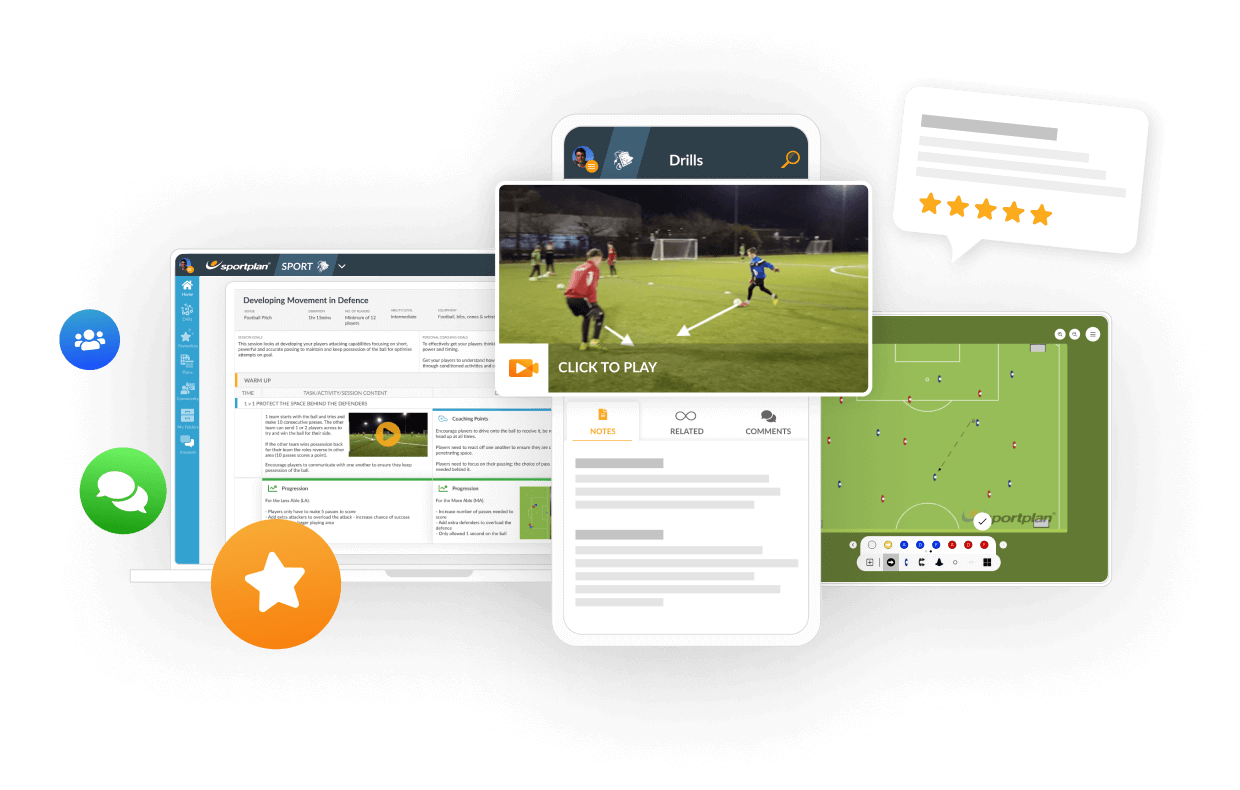
in more ways than one

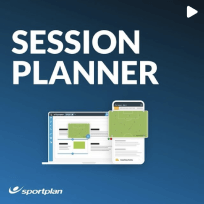
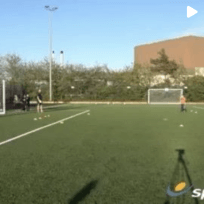
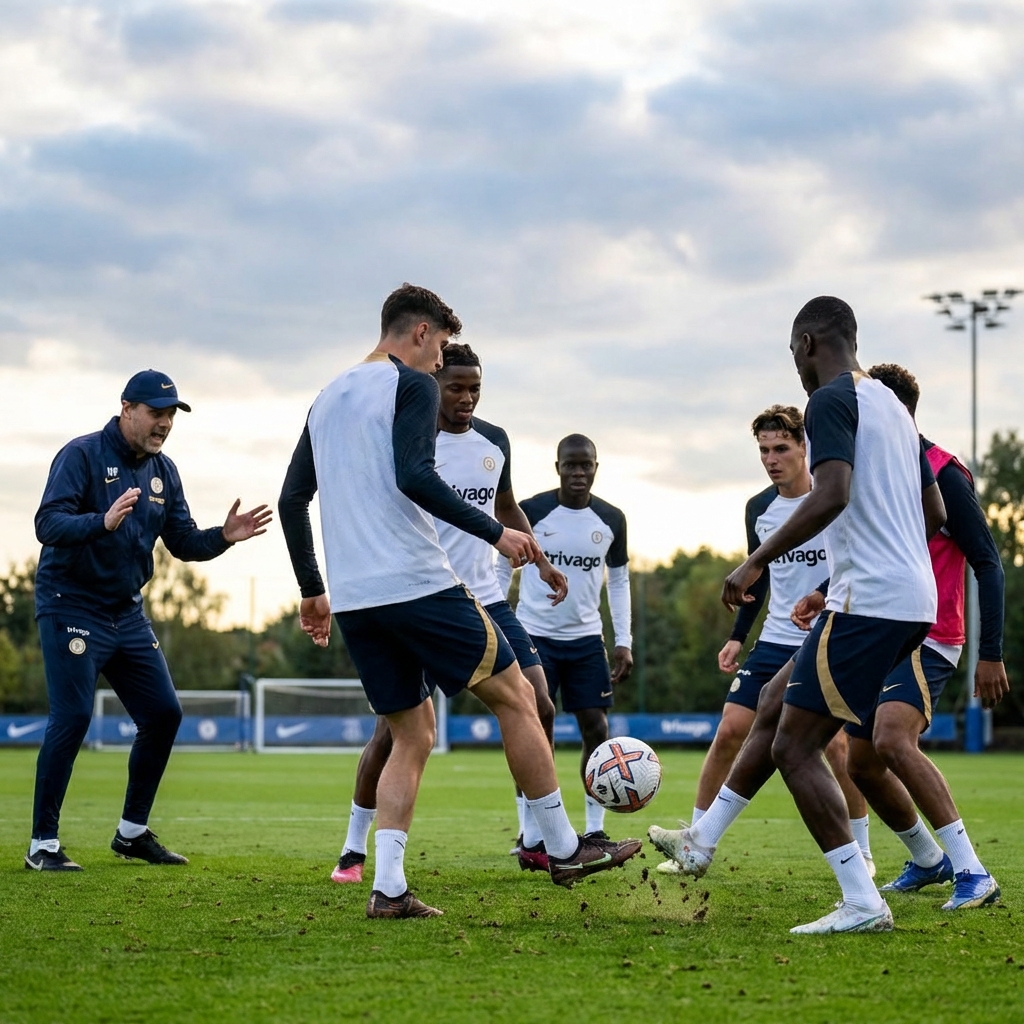
Why Barcelona's favourite training exercise should be in every coach's toolkit - and how to run rondos that actually transfer to matches.
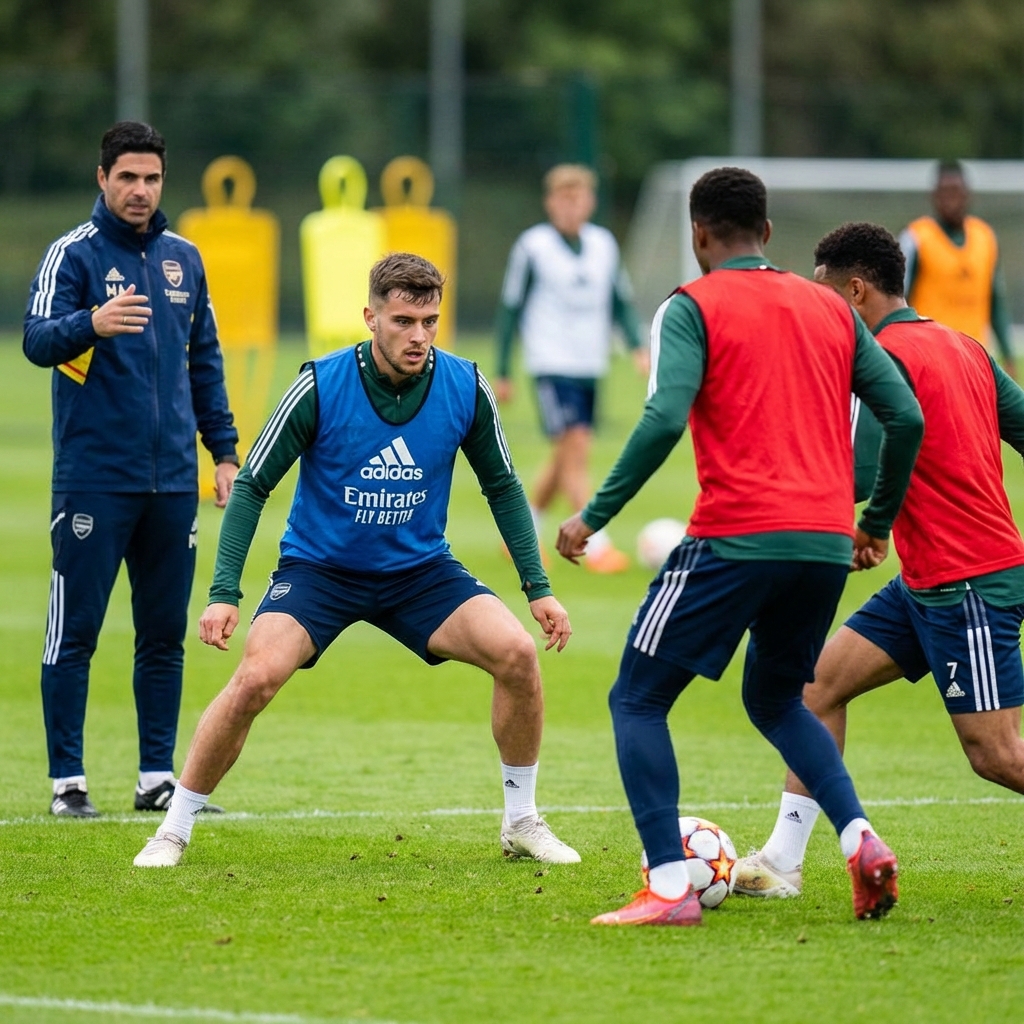
The decision-making framework that stops counter-attacks cold. Learn when to delay, when to force wide, and when to commit.
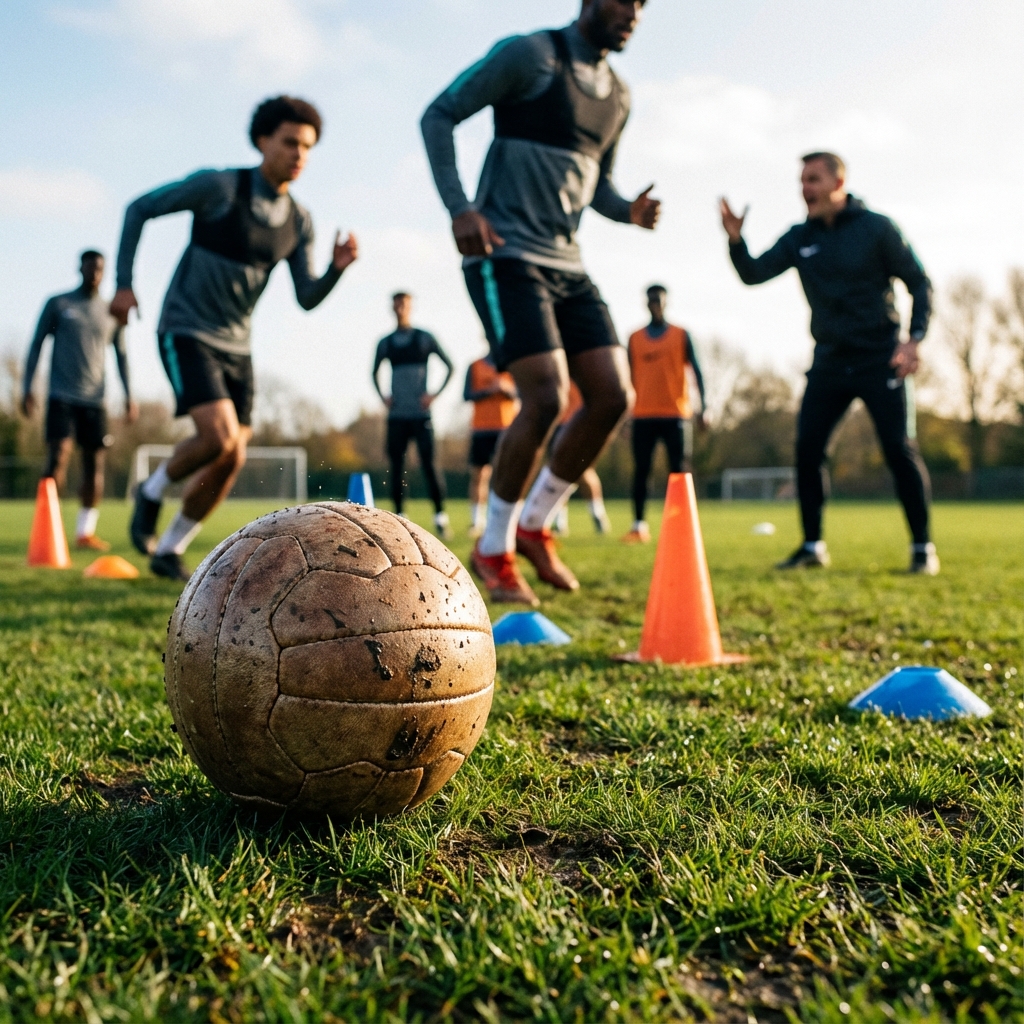
2026 brings the biggest World Cup ever, revolutionary rule changes, and new tactical opportunities for coaches at every level. Here's what you need to know.
Use our expert plans or build your own using our library of over 700+ drills, and easy-to-use tools.
JOIN NOW